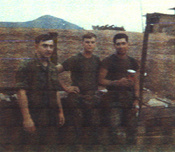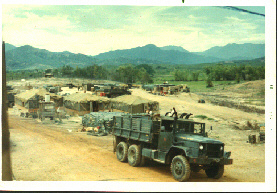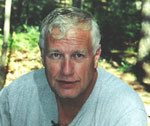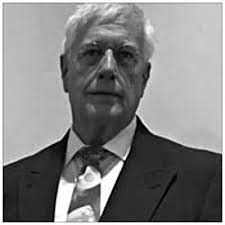 SOME WARTIME SEMI-FICTION FROM OUR PAST
SOME WARTIME SEMI-FICTION FROM OUR PAST
LESSONS FROM AN EARLIER WAR
BY Gordon Duff STAFF WRITER/Senior Editor
It is almost 40 years after another war for many of us. We read and watch stories about Iraq and Afghanistan, in reality, understanding little of what we see and less of what we read. For those of us who fought in Vietnam, Korea or World War 2, news of this war is almost like reading science fiction.
We have no Ernie Pyle “telling it like it is”, only controlled news, “Pentagon Bullshit” and “embedded” reporters, parroting the “party line” as though we were in Stalinist Russia. Floating around the Pentagon are literally hundreds of “brass hats”, chests filled with medals earned on the front lines in Vietnam, obviously in daily hand to hand combat leading their “farm boy” troops against a determined communist aggressor until betrayed by Jane Fonda, the New York Times, CBS News and those phony legless vets in wheelchairs at the anti-war rallies.
Today we will tell a story of one of those generals of today and how they won their spurs leading men in combat. The story will be fiction but a familiar one to those who were, be it Korea or Bastogne or An Hoa…….
It was a dark and stormy night…..wait. I keep forgetting. I am not Mickey Spillane. Sorry.
OK. It was sometime, let’s make it October, 1967 thru 70. We can be Marines stationed at one of the ramshackle bases in the northern half of what we used to call South Vietnam. That country no longer exists but the stories, 8 million of them, keep flowing on. Wait, this isn’t an episode of “Naked City”. Sorry.
A marine rifle squad, 7 men, walks thru a gate into a small barb wire surrounded “compound” with several tents, a water tower, an outdoor shower and two “3 holers” for bathroom facilities. There are a few cannons indicating a small artillery unit is there and we see bunkers, a couple of mortars and a machine gun or two. The entire place is only a hundred yards of mud and discarded boxes, cans and trash.
This is a real Marine base.
 This is not a real Marine base in the photo, just one I made up. Real bases look alot different than this one. They have lawns, chow halls, fancy uniforms and even guys carrying swords. I have seen all of this, especially on posters along side the road and painted on the sides of trucks.
This is not a real Marine base in the photo, just one I made up. Real bases look alot different than this one. They have lawns, chow halls, fancy uniforms and even guys carrying swords. I have seen all of this, especially on posters along side the road and painted on the sides of trucks.
The guys coming in after a night of sleeping on the ground during an “ambush”, the term given for a trailside campout, were tired, having had only 2 hours of sleep that night and, of course, still soaking wet although the sun would take care of that as it always did except when it rained.
This day the squad met the new Platoon Leader, a former student at a Kansas community college who had joined the Marine Corps and had been selected as a leader of men after volunteering 5 years of his life. His previous leadership experience had been at a Dunkin’ Donuts as assistant night manager. We were at least thankful that he hadn’t come from Annapolis.
The squad he looked on for the first time was typical. It contained two Mexicans, or perhaps Hispanic Americans, although they kept stating, often in perfect English that they didn’t speak English. I suspected they were lying but had no proof.
Two more of the group were “brothers”, meaning African America. To the Corps, at that time, the term “splib” was used, in a semi-derogatory manner. I never had a clue what it meant. One was from LA and had a couple of years of college including some football. The other from Arkansas or Texas or something. They had absolutely nothing in common except race. This wasn’t an active issue unless we had a large group of people together. Then everything divided on racial lines as though we were in a prison yard. Otherwise, color lines seemed pretty secondary compared to other issues at hand.
The last 3 were the white guys. One, a sensible, social urban type from Philly of Italian American background, liked and accepted by everyone, one a Chicago kid with a couple of years of college and signs of coming from a “good neighborhood” and the third, the squad leader, a Nebraska kid who had spent his first working summer after quitting high school operating the killing hammer at a feed lot. His idea of enjoyment was setting rats on fire. I hope he is in prison somewhere.
All had been in Vietnam at least 3 months with the squad leader the short timer at less than 40 days left in country. The squad itself had gone from upwards of 12 men to a low of 5 based on rotations, sickness and one idiot accidentally dropping a live grenade, minus pin and spoon, a bit near a couple of friends who were too busy ducking gunfire to notice at the time. Things like this, along with falling off trucks and weapons misfires kept squad sizes down quite well.
That day, the new Platoon Leader, 2nd Lt. Ronnie Fudge, was going on his first 2 day patrol. He had been “in country” for about a week and had been warned to listen to his NCO’s and to try not to screw up. He had been told this by people who had also been on a two day patrol themselves.
Almost every officer had been on a two day patrol. Most had been on only one. For many of them, it was a “one day patrol” and for a few, it was a “one hour patrol”. Unpredictability was part of the joy of Vietnam.
There was an almost automatic sense of hostility when the patrol was announced. Nobody wanted to take an officer along. To combat vets it made about as much sense as taking a bag of shit to a birthday party. Everyone had been thru this before. They had an idiot on their hands who was going to try to take control, make himself liked by everyone and, worst of all, try to “prove himself”.
A plan went into motion at the beginning. They had an officer with a helmet, flak jacket, heavy camouflage jacket, only 2 canteens and brand new boots who had no idea how hot it was going to get trailing along after people wearing t shirts, shorts, cut down boots but with 4 canteens and who had thrown their helmets away months ago.
It was going to be a slaughter.
The pointman set the pace out the gate, down the road and into the first village. The speed was set at just below a trot. After the village, the squad headed across the valley balancing on the rice paddy dikes, covered with wet clay. They had walked a hundred miles on these and could dance across them like olympic skaters. Behind them came the new Lt, splashing off first one side then the other, sweating like a pig, and sucking down his water from his canteens.
The goal, of course, was to see if they could get him to throw up as quickly as the last one did. This would usually mean the end of the patrol and could even put them back at the firebase on movie night. This could mean that the squad would see 2 movies in one year, a record.
Across the paddies, there was a treeline and a village. Fudge called for a “break” while he worked to get his body temperature under control, unbuttoned his heavy camo jacket and unsnapped his flak jacket. He took his ammunition bandoleers off his shoulders and cut them in half and tied them on each side of his hip, like everyone else. This gave him balance, left his flak jacket open and got some air flowing. He thought about throwing his helmet and camo blouse away, which, of course, would have made total sense (along with the useless flak jacket) but feared the look the company commander would give him when he got back in. Perhaps in the future, he would make sure everyone wore helmets and flak jackets, although he had no idea if such gear existed. He based this on the misguided belief that he would be expected to do this regularly.
That day was scheduled for about 9 clicks, 9 kilometers, that is, putting the unit along the side of the hills overlooking the valley, an area known for “infiltration routes”. At dusk, the last of a row of villages came to an end and the last straggling 7 year old, who may possibly have been a VC “lookout” had been left behind. The unit then doubled back, doubled back again, picked up speed and broke into the brush and out of sight, hoping this would guarantee some privacy, read survivability.
Knowing the new Lt to be a “greenie” seeking a “John Wayne” experience, the squad leader, we will call him “Jeff” although you and I really know he had two names, Billy Bob or Bobby Ray or some such country-ass shit, suggested heading well up the hillside, well into the heavy brush and well away from any usable trail for any sensible person.
A direction of expected “enemy” was chosen and the squad took on a linear position about 30 feet above an imaginary infiltration route, not used since the French had left years ago. Watches were set up with 2 awake at a time. This made for 4 watches of 2 hours each which could account for up to 6 hours sleep, a record. During each watch, the two awake shared the radio (an early PRC25). Every 15 minutes calls would go out naming each unit by call sign and ask for a response. The response was to “key the handset”, squeezing it, which caused a “burst” sound over the network. This is how people announced they weren’t dead yet.
When no burst was heard, it meant the unit was all dead or the two men on watch had fallen asleep. Either way, there was hell to pay.
Around 1AM, heavy sounds were heard coming up the hill in front. Talking was heard. It was clearly Vietnamese. From the noise, it sounded like a larger unit. It made absolutely no sense whatsoever that a VC or NVA unit would be there, want to be there or ever think of any reason to be there. The Marines were there to hide. Little did they know that others had the same thing in mind.
What was mistaken for a VC or NVA unit was actually one of the extremely rare South Vietnamese Army units that was almost never in the field, and when they were, were never where they were supposed to be. Every unit was tracked on maps and every unit was supposed to be somewhere. Every unit lied and was somewhere else. For the most part, this had been working out just fine for everyone. Vietnam was a pretty big country. It had become common sense for just about everyone living in the real world that getting lost and keeping out of the way until the idiotic politicians had talked themselves to death was the only way of suriving the war.
The new Lt. was confronted with a conundrum. He was faced with an enemy force and a need to react in such a way as to be able to avoid being criticized or humiliated when and if he ever got back. He had artillery, air support and reinforcements at his disposal, or so he had been told. Nobody had mentioned that the local Vietnamese government had disallowed use of artillery or illumination in this area because it was thought to fighten the cattle.
Little did the new Lt. know that the Marine Corps had very few functioning helicopters, in actuality, well under 60 in the entire country.
Nobody had told the new Lt. that the Air Force didn’t work during the evening.
Even less well known was the fact that the reinforcements that showed on his map to be a few hundred yards away were actually sleeping in a village across the valley after an all night card game.
This left him to his own resources, such as they were. His first goal was to learn who was out there. Toward that end, he took a “pop flare” out and send a small illuminated parachute over the “enemy” position. He also told the “enemy” exactly where he was in doing so. The “enemy”, being South Vietnamese, began responding, first, by shooting each other, some by fleeing as though the wrath of god were after them and a select group began pouring automatic weapon fire onto the Lt’s position.
Looking around, the Lt noticed that his 7 men were withdrawing with 3, representing a fireteam, circling around to flank the “enemy” and laying down sporatic fire as they moved. He also noted he had, among the 4 men moving back, two with wounds. There was one answer and one answer only. That was to get on the radio and get help. He was also becoming “excited”, read “fearful”.
First request was for artillery support. The answer to that was that it would not be forthcoming until someone could drive down to the district headquarters tomorrow and discuss it with the local chief. His next request was for artillery illumination but he was told that the empty canisters might fall on a village nearby, injuring civilians and this would not be possible.
His third request was for a medivac helicopter to get the wounded out. This, he was told, would take 15 minutes. An hour later, a Marine CH46 twin rotor helicopter showed up. Firing had subsided and nobody had a clue who was who or what was what. However, there was firing at the helicopter. Perhaps the South Vietnamese had decided that the VC now had an Air Force or there may have been some other reason. We will never know.
Two wounded Marines ended up on the chopper along with 5 dead South Vietnamese. Those few moments led to alot of odd looks, some signs of hostility, some pushing and shoving and a general breakdown in political relations between the two countries. Thank heavens everything would be ok by the next day and the war could go on for years and years without interference except from the pesky VC and NVA.
Apparently, the tone of voice used by the new Lt while talking on the radio had been overheard, not only at company headquarters but at battalion. From the safety of their underground bunkers, holding their cups of coffee, a Captain and a Major decided that there was a need to intervene. Officers must “maintain an even strain”. Yelling “Get us the hell out of here!” over a radio didn’t fall into this category.
A road led up to a point about a mile from the incident. At 0900H (9AM) two jeeps came up that road and 2nd Lt. Fudge loaded his gear into one of those and was driven away. The men of his squad and the men of his platoon never saw him again. 6 or 7 weeks later, a new 2nd Lt was appointed Platoon Leader but he passup up his chance for his two day patrol, choosing to stay in the company command post or at “meetings” for his 6 month tour.
2nd Lt. Fudge eventually became 1stLt Fudge, S-3 (Operations) Liaison Officer. There were 4 or 5 S-3 Liaison Officers, none with clear duties who would occasionally make coffee, drive into DaNang and generally stay out of the way. Good or bad, deserved or not, they were treated like cowards and criminals too often by commanders who had never seen combat except on television.
When time came for him to leave Vietnam, the “after action report” for the “friendly fire incident” had been rewritten as an enemy ambush. The artillery that didn’t exist was, on paper, at least, called in with great skill and effect with “cold precision while under direct enemy fire.” 5 of the enemy died and we had only 2 wounded.
With the job situation as it was during the 1970s, Lt. Fudge stayed on in the Marine Corps. He wore a purple heart for an injury received during his combat experience. (falling out of the jeep when it hit a chuck hole while being driven back to the base) and a bronze star with combat V for his heroism that evening. He would return to Vietnam again as a 1st Lt and become a Captain. There he would serve in Regimental Intelligence (G-2) as a Liason Officer but no longer have to make coffee. He would spend that tour telling others of his combat exploits.
This tour would be much closer to the city, much further from the gunfire and rockets. At the end of this tour he would earn a Silver Star. This award would be for an incident involving a rocket attack where he ran to save men from a burning jeep at great risk to his own life. Dozens of other Silver Stars were given out for almost identical incidents, worded in an almost identical manner. Sometimes it was a jeep, sometimes it was a truck. In one case it was a helicopter. He also won another Purple Heart, this time for tripping over a hole on the way back from the officers club. These awards are almost identical to ones won by a former Chairman of the Joint Chiefs of Staff. Good company, I must say.
With these medals, a few unit citations, a good conduct medal and the mandatory Vietnamese Crosses of Gallantry, promotion to Major and a position with a top command was a cinch followed by the right schools.
Ass kissing, limited drinking, lack of an ugly divorce and a good jogging regimen led to Colonel and then General. 29 years were spent teaching others the lessons learned in 12 minutes of combat and 13 hours in the field.
With medals for Panama, Grenada and planning Operation Desert Storm, Fudge ended up with over 30 citations. Some of us would say he got one medal for each 20 seconds of combat. That would be unkind.
Some of could say he got 6 medals for each enemy he killed. There might be some technical inaccuracies in that also, but, as usual, there is nobody to ask such questions.
Someday a President might ask this man to command an entire war. This is a man who had learned never to say no to combat as long as someone else got to be 2nd Lt. Fudge this time.
and so it goes
 GORDON DUFF IS A MARINE VIETNAM VETERAN AND A PERIODIC COMMENTATOR ON POLITICAL AND SOCIAL ISSUES
GORDON DUFF IS A MARINE VIETNAM VETERAN AND A PERIODIC COMMENTATOR ON POLITICAL AND SOCIAL ISSUES

Gordon Duff posted articles on VT from 2008 to 2022. He is a Marine combat veteran of the Vietnam War. A disabled veteran, he worked on veterans and POW issues for decades.
Gordon is an accredited diplomat and is generally accepted as one of the top global intelligence specialists. He manages the world’s largest private intelligence organization and regularly consults with governments challenged by security issues.
Duff has traveled extensively, is published around the world, and is a regular guest on TV and radio in more than “several” countries. He is also a trained chef, wine enthusiast, avid motorcyclist, and gunsmith specializing in historical weapons and restoration. Business experience and interests are in energy and defense technology.
ATTENTION READERS
We See The World From All Sides and Want YOU To Be Fully InformedIn fact, intentional disinformation is a disgraceful scourge in media today. So to assuage any possible errant incorrect information posted herein, we strongly encourage you to seek corroboration from other non-VT sources before forming an educated opinion.
About VT - Policies & Disclosures - Comment Policy



